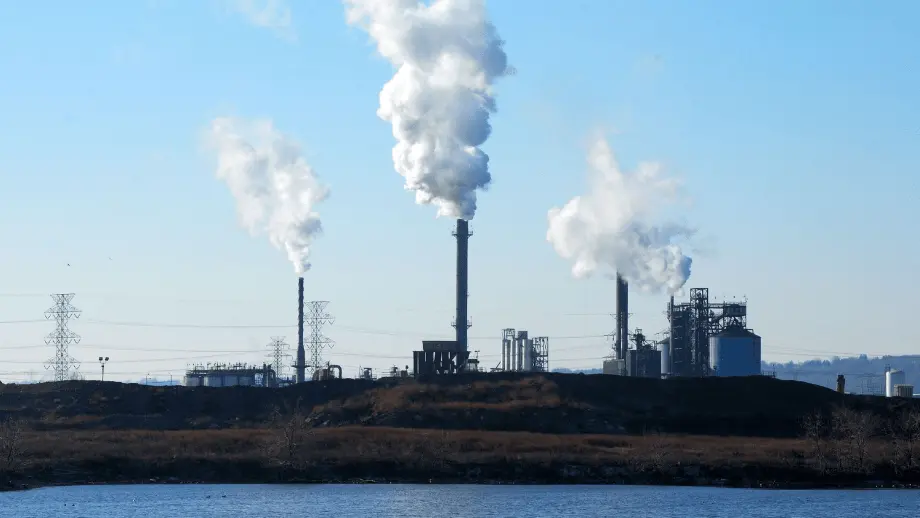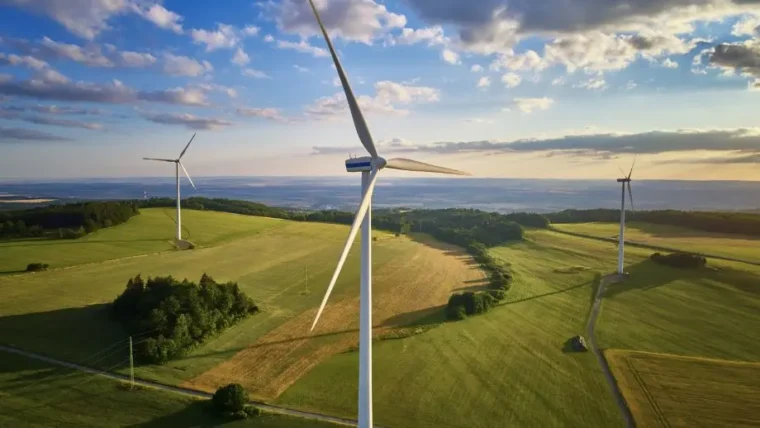Fortnightly Bulletin – 21st November 2022
21 November 2022

Legal Updates
Phase 3 to the Energy Savings Opportunity Scheme (ESOS)
The Energy Savings Opportunity Scheme (ESOS) requires that qualifying ‘large’ organisations to maintain records of their energy use, and have these audited by an approved assessor. The assessor is required to identify reasonably practicable and cost-effective ways to improve energy efficiency across the organisation.
A qualifying organisation must have 250 or more employees, and/or an annual turnover in excess of £44 million, with an annual balance sheet in excess of £38 million. ESOS energy efficiency audits are required every four years as part of the legislation.
Due to recent changes to the government, previously proposed changes as part of ESOS phase 3, may or may not go ahead. These proposals were set out in a government response to a 2021 consultation.
Key dates for ESOS Phase 3 obligations:
- Twelve months’ energy data used in the ESOS audit may begin from 1st January 2022.
- Undertakings are required to comply based on their employee headcount and/or financial standing as of 31st December 2022.
- Phase 3 audits will be required to be completed and reports notified to the Environment Agency by 5th December 2023.
To read more on this updated scheme, click here.
Renewable Heat Incentive Scheme (Amendment) Regulations 2022
The Renewable Heat Incentive Scheme Regulations 2018 established the non-domestic renewable heat incentive scheme, which is now closed to new applicants.
These Regulations will amend the Renewable Heat Incentive Scheme Regulations 2018, on the 16th November 2022.
The duty to notify Ofgem of proposals to modify the capacity of ground source heat pumps or shared ground loop systems has been updated, allowing persons who are not owners to make these notifications. The process by which Ofgem may reject plans to modify the capacity of RHI installations for budget reasons has also been updated.
RHI fuel quality criteria on solid wood biomass are suspended until 16 November 2023, unless extended by a notice. This suspension is due to a shortage of wood pellets arising from sanctions on Russia and Belarus.
The amended legislation will apply to England, Wales and Scotland.
To read more on this updated legislation, click here.
Climate Change (Targeted Greenhouse Gases) Order 2022
The Climate Change Act 2008 sets the UK’s legally binding net-zero greenhouse emissions reduction target by 2050, based on 1990 levels. Under the Act, targeted greenhouse gases are those subject to the emissions reduction target and reporting duties.
This order will amend the Climate Change Act 2008 to add Nitrogen Trifluoride (NF3) as a targeted greenhouse gas under Section 24. 1995 will be set as the base year for this gas.
At a future date, the Climate Change (Targeted Greenhouse Gases) Order 2022 will amend the Climate Change Act 2008 and Occupational Pension Schemes (Climate Change Governance and Reporting) Regulations 2021 on a future date, which has yet to be confirmed.
To read more on this updated legislation, click here.
Guidance
Submit Returns for Climate Change Levy
Guidance has been produced for electricity producers and energy suppliers, on how and when to send HMRC their returns.
The guidance has been updated as HMRC no longer sends out Climate Change Levy return forms. The form must be downloaded and printed off. The address to send the form to has changed to: HMRC TAPS & CCL, BX9 1XL. Temporary measures and references to coronavirus (COVID-19) have been removed from this guidance.
To read more on this updated guidance, click here
Waste: Export and Import
Guidance has been produced regarding the controls that apply to transporting waste out of or into England.
The guidance has been updated with the addition of text under Exporting waste for notification controls to explain that when more than one shipment is made under one notification, for each shipment the waste must have the same physical and chemical characteristics.
To read more on this updated guidance, click here.
Post-Combustion Carbon Dioxide Capture: Best Available Techniques (BAT)
Guidance has been produced regarding the available techniques which are the best for preventing or minimising emissions and impacts on the environment from post-combustion carbon dioxide capture.
Section 6 of the guidance has been updated, removing the requirement to consider climate change adaptation from the permit application process. Instead, it is a requirement to integrate climate change adaptation into a management system.
To read more on this updated guidance, click here.
Articles of Interest
Government and Banks Urged to Assist Small Businesses in Achieving Net Zero
Bankers for Net Zero, the UK chapter of UN Net-Zero Banking Alliance, warns that small and medium-sized enterprises (SMEs) risk losing large corporate customers unless they can report on their net-zero emissions. Banks, accountants and SMEs will need to work together to deliver a “just transition”.
Bankers for Net Zero state that SMEs do not currently have the expertise, resources or time to transition to net zero without support from their banks. Under its Mobilising SMEs for Climate Action workstream, the group aims to develop practical solutions by bringing together banks, accountants, energy companies, civil society and SMEs to devise “an actionable and transparent framework which will enable frictionless reporting on net-zero emissions for banks and their SME customers”.
The move comes as Sage and International Chamber of Commerce unveiled its report The Climate Impact of SMEs, showing that SMEs are generating 44% of the UK’s non-household greenhouse gas emissions. In 2021, UK SMEs contributed an estimated 160m tonnes of Scope 1 greenhouse gas emissions, rising to 63% once their supply chains are considered.
The report calls on the government not to overlook small businesses as they contribute 50% of the country’s Gross Value Added to GDP – worth £1trn in 2021 – while providing 52% of total employment (18.2 million jobs). It adds that without urgent support from policymakers, SMEs are at risk of being left behind in UK’s fight against climate change.
To read the full article, click here.
Major Supermarkets Restate Environmental Target after Further Rise in Emissions
The Co-op, Marks & Spencer, Sainsbury’s, Tesco and Waitrose first made the commitment at COP26 last year under a joint initiative with the World Wide Fund for Nature (WWF). According to the WWF’s annual progress report What’s in store for the planet: The impact of the shopping basket on climate and nature, the supermarkets have reduced their Scope 1 and 2 absolute emissions by 4%, but their Scope 3 emissions have increased by 5% and account for 97% of retailers’ total greenhouse gas (GHG) footprints.
Retailers have made progress in reducing food waste across their operations, particularly through redistributing edible surplus; they have achieved a 19% reduction in retail and manufacturing waste against their 2007 baseline year. They also reported that 96% of the packaging they use is recyclable and that 23% is either recycled content or sustainably sourced. However, the WWF adds that to achieve a 50% reduction by 2030, “an escalation of work in this area is needed”. The area with the furthest distance to go is farm-stage food waste, where a baseline has still not been established.
The WWF has joined forces with the Waste & Resources Action Programme (WRAP) to launch a workstream for tackling supply chain emissions, with signatory supermarkets supported to set approved science-based targets that cover Scope 3 emissions. The retailers have pledged to support their suppliers on such targets.
To read the full article, click here.
Fines and Prosecutions
Failure on Duty of Care Leads to £5,000 Fine
A statutory notice was served by Environment Agency officers in South Yorkshire, following an investigation into fly-tipping in a layby.
The notice required the culprit to hand over paperwork supporting the transfer of waste from their land in South Yorkshire. Officers attended the site in October 2020 and gave the culprit advice on the actions they needed to take. These included the removal of excess waste and the importance of retaining relevant Waste Transfer Notes for waste that had been removed.
When officers returned to the site in June 2021, they noted that most of the waste had gone. However, when asked to provide the Waste Transfer Notes, the culprit failed to provide any documents in respect of the waste removed. The transfer notes were requested for between the dates of the Environment Agency visits. After 12 months a single document was provided, but this did not match the waste on the site. It did not provide the information legally required by a transfer note; in particular, it did not identify the person removing the waste.
The court heard that the culprit had no system for recording waste movements from their site. This leaves waste vulnerable to the risk of fly-tipping and made it impossible for the Environment Agency to trace its movements, once it had left her site.
The perpetrator was ordered to pay a fine of £729, costs of £4,579 and a victim surcharge of £72. The presiding magistrate said that they had acted “recklessly” and had “ample opportunity to comply with her obligations.”
To read the full article regarding this prosecution, click here.
Online Learning and Events
Green Careers Hub: Your Next Step Towards a Sustainable Future
23rd of November 2022 – 12.30 – 13.15
This webinar will talk about the importance of green jobs and skills, as well as take you through the plans for the expansion of the Green Careers Hub in 2023, to a platform where anybody can go to access information and opportunities around green skills, jobs and careers.
Click here to register for this webinar
Environment Impact Assessment for Infrastructure Masterclass
1st of December 2022
Join the Environment Impact Assessments for Infrastructure Masterclass in December to understand the policy developments that are transforming environmental requirements and gain essential guidance on overcoming the challenges of conducting EIA.
Attend to receive practical strategies for including biodiversity net gain and explore how to meet net zero requirements, for new projects. You will hear all the insight needed to conduct the EIA for your project, as you discover tools for improving the efficiency of the EIA process.
From effectively engaging with local stakeholders and understanding how to implement proportionality in your application, to the use of new digital tools and the future use of Environmental Outcome Reporting, this is an essential update for environmental professionals.








